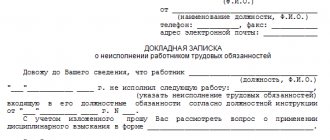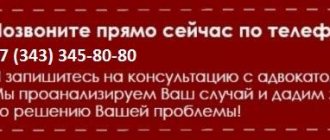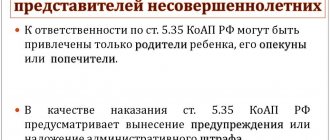Art.
156 of the Criminal Code of the Russian Federation is of particular importance in relations between minors and the people responsible for them. The duty of adults, accomplished people, is to raise children correctly, help them understand themselves as individuals, and adapt to society. In addition to emotional participation, children need basic care, proper nutrition, health monitoring, clothing appropriate for the season, diversified development, and communication with peers. Failure to comply with the conditions for keeping children, the use of physical force and negative moral influence on a child is perceived by the law as failure to fulfill obligations to raise a minor and cruel treatment of children. Multi-channel free hotline Legal advice on criminal law. Every day from 9.00 to 21.00
Moscow and region: +7 (495) 662-44-36
St. Petersburg: +7 (812) 449-43-40
Commentary on Article 156 of the Criminal Code of the Russian Federation
1. The social danger of the crime lies in the fact that harm is caused to the spiritual, moral and mental development of the child.
1.1. The article under comment consists of one part, establishing the main elements of the crime. The act provided for in Art. 156, belongs to the category of crimes of minor gravity.
2. The main object of criminal assault is the social relations arising in connection with the upbringing of minors. An optional object may be the honor, dignity, or health of a minor.
3. The objective side of the crime is expressed in the failure to fulfill or improper performance of duties to raise a minor, if this act is associated with cruel treatment of the minor.
3.1. Failure to fulfill or improper fulfillment of responsibilities for raising a minor can be expressed in the lack of due care for the well-being, comprehensive development and upbringing of the minor, disrespect for his human dignity, ignoring his interests, etc. (Part 3 of Article 1, Clause 2, 3 of Part 2 of Article 54 of the RF IC). Failure to fulfill or improper fulfillment of responsibilities for raising a minor can be in the form of action or inaction.
3.2. Cruel treatment of a minor can manifest itself in violence or the threat of violence against a child, an insult to his human dignity, deprivation of water and food, warmth, light, keeping him locked up, in a cage, on a chain, etc.
4. If cruel treatment of a minor resulted in his death or harm to his health, then qualification according to comment. article is excluded. In this case, the actions of the perpetrator, depending on the consequences that occur, should be qualified under Art. 105, 109, 111 - 112, 115, 117 - 118 (see Determination of the RF Armed Forces dated July 14, 2004 <1>). ——————————— <1> BVS of the Russian Federation. 2005. N 3.
5. The corpus delicti is formal in design. The crime ends at the moment of cruel treatment of the minor.
6. From the subjective side, a crime is characterized by guilt in the form of direct intent. The motives and goals of harsh treatment of a minor do not affect the qualification of an act as a crime.
7. A special subject of a criminal offense is a parent or other person who is entrusted with the responsibility of raising a minor, a teacher or other employee of an educational, training, medical or other institution who is obliged to supervise the minor.
7.1. For information about the parent or other person entrusted with the responsibility for raising a minor, as well as the teacher, see the commentary. to Art. 150.
7.2. Another employee of an educational, training, medical or other institution is understood to be an employee who is not obliged by law to educate a minor, but is obliged to supervise him.
Article 156 (“Failure to fulfill obligations to raise a minor”)
Poor treatment of a child in a family is not always obvious and can last for a long time. It implies any physical or moral action of a negative nature towards a minor.
Punishment for harming children is provided for in several codes:
- RF IC – Article 69.
- Code of Administrative Offenses of the Russian Federation – Article 5.35.
- Criminal Code of the Russian Federation – Article 156.
This also includes Article 91 of the Housing Code of the Russian Federation, which provides for the eviction of parents if their residence with children is impossible by court decision.
The wording of the listed articles has a common feature: they all establish punishment for deliberately ignoring or negligent attitude towards the responsibility to raise a minor or for cruelty in relationships with children.
The concept of improper performance of parenting responsibilities includes frivolous, indifferent, inattentive behavior concerning the interests of children. And also the lack of sufficient attention to the child’s environment, nutrition, hygiene, education, neglect of his rights.
If the listed signs are present, the punishment is established under Article 5.35 of the Code of Administrative Offenses of the Russian Federation. If neglect of upbringing responsibilities is accompanied by child abuse - Article 156 of the Criminal Code of the Russian Federation.
Cruelty is expressed in the provision of physical or psychological violence by adults against a child, in an attack on his sexual integrity.
A similar explanation of the content of illegal actions under Article 156 of the Criminal Code of the Russian Federation is given by the Resolution of the Plenum of the Armed Forces of the Russian Federation.
The following are held liable:
- mother and father;
- citizens who have the legal right and obligation to raise a child;
- any education workers, including teachers;
- employees of healthcare institutions;
- social services;
- supervision authorities for minors.
Most often, Article 156 of the Criminal Code of the Russian Federation is applied specifically to parents, despite the fact that caring for their children should be the main subject of their lives. In second place are educational institutions (schools, kindergartens). For example, one of the common problematic topics covered in the media is minors getting injured due to the negligent attitude of teaching staff to their duties (at sports training, children's playgrounds, and so on).
The statistics are disappointing: in Russia every year up to 17 thousand children and adolescents suffer from violent acts.
Abuse may include:
- Active nature, that is, causing harm occurs purposefully, in accordance with malicious intent (beatings, bullying).
- Passive nature, when involuntary damage occurs caused by indifference or frivolity (the child is not brought up and does not receive compulsory education).
The harm caused often directly affects children's health when children receive physical injuries (bruises, fractures, advanced diseases). Regular infliction of such damage often leads to psychological problems.
More dangerous, but less noticeable damage is caused by negative mental impact, it causes disruption in the development of the child’s personality, interferes with his adaptation in society, and affects the emotional state.
Article 156 of the Criminal Code of the Russian Federation defines the following types of punishment for a crime committed:
- fine (maximum amount – 100 thousand rubles or income for a period of 1 to 12 months);
- compulsory work (period set by the court, maximum 440 hours);
- correctional labor (1–24 months);
- forced labor (maximum 36 months);
- imprisonment (up to 36 months).
The latter points may be accompanied by deprivation of the right to work in certain positions for up to 5 years.
Undoubtedly, new sanctions against child abuse are needed. Article 156 of the Criminal Code of the Russian Federation with comments and amendments will be adopted in the near future.
There are different opinions regarding the application of sanctions under this article. The report on the practice of the courts of the Arkhangelsk region in cases of crimes aimed at minors for 2003–2004 noted that in order to impose a punishment it is enough to commit such an offense once. But there are also those who believe that to qualify as a crime, the crime must be systematic. For example, this position was expressed by the Supreme Court of the Udmurt Republic. The topic has not lost its relevance today. It should be noted that most experts agree with the first opinion.
Another comment on Art. 156 of the Criminal Code of the Russian Federation
1. The objective side of the crime is expressed in the form of inaction, since those specified in Art. 156 of the Criminal Code of the Russian Federation, persons either do not fulfill at all or do not properly fulfill their duties in raising a minor.
2. Failure to fulfill or improper fulfillment of upbringing responsibilities must be coupled with cruel treatment of a minor, which can be expressed both in physical and mental violence, and in the use of other unacceptable methods of education that do not involve violence.
Physical violence consists of beatings, restriction of freedom, torture, and causing any degree of harm to the health of a minor. The commission of any violent crime is more serious than that provided for in Art. 156 of the Criminal Code, and always requires qualification based on the totality of crimes. Mental violence can be expressed in humiliation, insult, ridicule, uttering threats, intimidation, bullying, etc. The use of other unacceptable methods of education can manifest itself in deprivation of food, clothing, sleep and rest, failure to provide medical and other assistance, etc.
3. The corpus delicti is formal; it is recognized as completed from the moment of failure to fulfill or improper fulfillment of duties for the upbringing of a minor, coupled with cruel treatment of him.
4. Special subject of the crime: 1) parents, adoptive parents, foster parents, guardians and trustees; 2) persons obliged to educate a minor in the process of supervising the latter due to professional (official) duties.
Commentary on Article 245
1. The crime for which responsibility is established by the commented article was provided for in the Criminal Code of the RSFSR in Art. 230(1). The new edition provides only the material elements of the crime, the characteristics of the subjective side are clarified, new signs of the objective side of this act and qualifying signs are introduced, which makes it possible to consider the change in the characteristics of this crime to be significant.
2. This crime encroaches on relations in the field of keeping animals and on public morality. When someone else's animal is injured or killed, the crime also causes damage to the owner's property.
3. The subject of this crime can be both domestic and wild animals. In accordance with Art. 131 of the Civil Code of the Russian Federation, general rules on property apply to animals, unless otherwise established by law or other legal acts. When exercising owner rights, cruelty to animals that is contrary to the principles of humanity is not allowed. Article 241 of the Civil Code of the Russian Federation allows, in cases where the owner of domestic animals treats them in clear contradiction with the rules established by law and the norms of humane treatment of animals accepted in society, to remove these animals from the owner by redeeming them by the person who has submitted the corresponding demand to the court. The ransom price is determined by agreement of the parties, and in case of a dispute, by the court.
Relations arising regarding wild animals are regulated by the Law of the Russian Federation “On the Animal World” (Law of the Russian Federation, 1995, No. 17, Art. 1462).
4. The objective side of this crime lies in the actions - cruelty to animals, the consequences - injury or death of animals and the causal connection between them. The crime is completed from the moment the specified consequences occur.
5. Beating an animal, using it for unscientific experiments, inflicting unjustified suffering during scientific experiments, a painful method of killing an animal, etc. should also be considered as cruel treatment. The use of animals in various types of fights, when animals are set against each other and as a result, should also be considered are injured or killed. Hunting by inhumane methods with the use of mutilating instruments and means should also be considered cruel treatment (the obligation to use humane methods when using the animal world, one of the types of which is hunting, is directly provided for in Article 39 of the Law of the Russian Federation “On Animal World”).
6. Criminal liability for cruelty to animals arises under certain circumstances, characterizing, in particular, the method and situation in which this crime was committed. Such circumstances include committing an act using sadistic methods, i.e. with special, sophisticated cruelty, for example, skinning a living animal, setting a living animal on fire, etc., as well as committing this act in the presence of minors, i.e. children under 14 years of age.
7. The crime is intentional and can be committed with both direct and indirect intent: the perpetrator realizes that he is cruelly treating an animal, foresees injury to it or its death and desires this or consciously allows it or is indifferent to these consequences. Responsibility under this article also occurs if the act was committed for hooligan or mercenary reasons. Hooligan motives consist of the desire to challenge society by disregarding generally accepted standards of morality and humane treatment of animals. Selfish motives involve cruelty to an animal to obtain material gain, for example, winning in an animal fight if the animal on which the bet is placed or which, at the owner’s request, participates in the fight wins, as well as the use of domestic animal fur to make hats, etc.
8. The subject of this crime is a person over 16 years of age.
9. The qualified elements of the crime under comment provide for liability for its commission by a group of persons, a group of persons by prior conspiracy or an organized group (see commentary to Article 35) or repeatedly (see commentary to Article 16).
Scientific and practical commentary:
1. The immediate object is public morality in the sphere of humane treatment of animals, which means domestic, wild and captive mammals and birds. 2. The objective side of the crime consists of actions consisting of cruelty to animals, i.e. in their systematic beatings, inhumane conditions of detention (in cold or heat), in long-term deprivation of food and water, etc. A constructive sign of the objective side is the consequences in the form of death or injury to an animal that has been subjected to cruel treatment. On this basis, the organization of dog, cock and other fights that lead to the death or injury of animals should also be recognized as cruel treatment. 3. A prerequisite for criminal liability for cruelty to animals is (regardless of the motives of the perpetrator) the commission of this act using sadistic methods, which are understood as particularly humiliating methods of causing suffering to animals, or its commission in the presence of minors, i.e. . persons under the age of 14 years. 4. The crime is considered completed from the moment the consequences specified in the law occur—the death or injury of the animal. 5. The subjective side of the crime is characterized by intent: the perpetrator realizes that he is subjecting an animal to cruel treatment, foresees the possibility or inevitability of its death or injury and wants to cause such consequences (direct intent) or consciously allows them to occur or is indifferent to this (indirect intent). 6. Alternatively, the mandatory features of a crime are its motives: if the act was committed without the use of sadistic methods and not in the presence of minors, then it is criminally punishable only if there are certain motives - selfish or hooligan. 7. Selfish motives are typical when organizing fights between animals, when spectators are charged a fee or bets are accepted on the winner.






